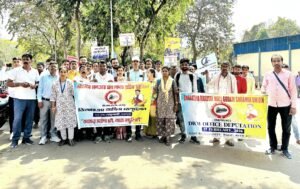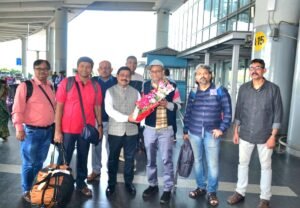News Stardom : New Delhi, 4th, August, 2025. What Is Leptospirosis and Why Monsoon Hygiene Matters More Than You Think
What is Leptospirosis?
Leptospirosis is a bacterial infection that spreads through water contaminated by animal urine, particularly from rats, dogs, and livestock. During monsoon season, this threat multiplies dramatically as flooded streets, and overflowing drains create perfect breeding grounds for the bacteria. The infection enters your body through cuts, abrasions, or mucous membranes like your eyes, nose, and mouth. What makes leptospirosis particularly dangerous is that its initial symptoms – fever, chills, and body aches – closely resemble common monsoon ailments like flu or dengue, often leading to delayed diagnosis and treatment.
Why Monsoon Increases the Risk
The monsoon season transforms everyday activities into potential health hazards. Wading through dirty floodwater, walking on mud-covered surfaces, and increased exposure to wet environments dramatically elevate your risk of contracting leptospirosis. When your skin is wet or you have open wounds, bacteria can easily penetrate your body’s natural defenses. Even seemingly minor activities like splashing through puddles or handling wet objects can expose you to contaminated water.
Monsoon Hygiene Must-Haves
Immediate action is crucial when dealing with potential exposure. Always clean and disinfect wounds immediately after contact with contaminated water. You should use a trusted antiseptic like Savlon Antiseptic Liquid – it’s effective in first aid and hygiene and kills 99.9% of germs. This versatile solution can be mixed with bathwater for thorough disinfection or used to sanitize laundry, throughout your home. Remember to change out of wet clothes as soon as possible to minimize prolonged exposure to bacteria.
Avoiding Exposure Outdoors
Prevention starts with smart choices. Never walk barefoot, especially in muddy or flooded areas. Invest in protective footwear and keep minor cuts covered with waterproof bandages. When traveling in flood-prone areas, carry antiseptic wipes or liquid for immediate use. These simple precautions can significantly reduce your risk of infection.
When to Get Checked
If you experience flu-like symptoms after exposure to contaminated water, seek medical attention immediately. Don’t ignore unexplained fever, as early intervention is crucial to prevent complications like liver or kidney damage. Leptospirosis is completely treatable with antibiotics when caught in time, but delays can lead to serious health consequences. A little precaution today can prevent a serious illness tomorrow – monsoon brings beauty and bacteria, but smart hygiene makes all the difference.






Be First to Comment